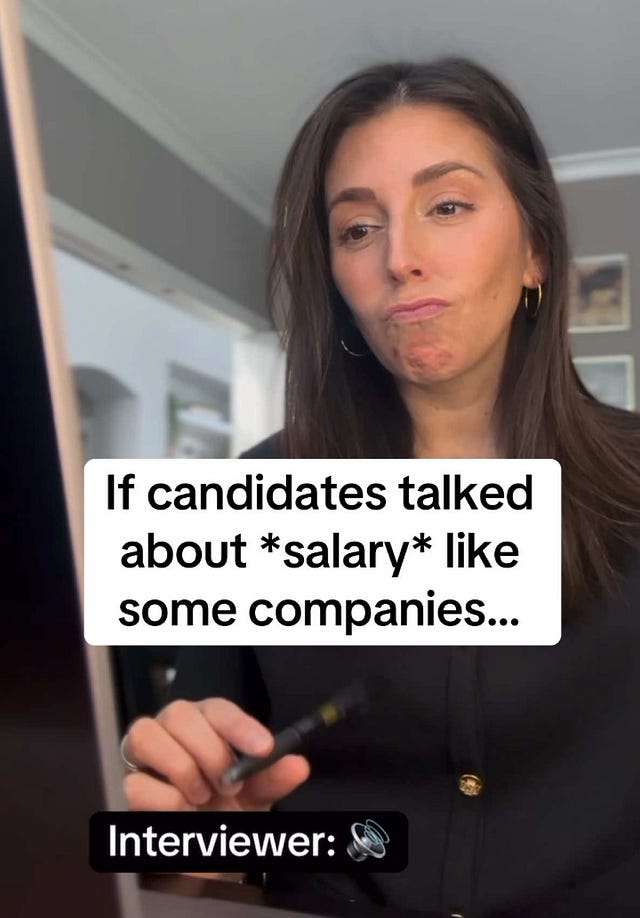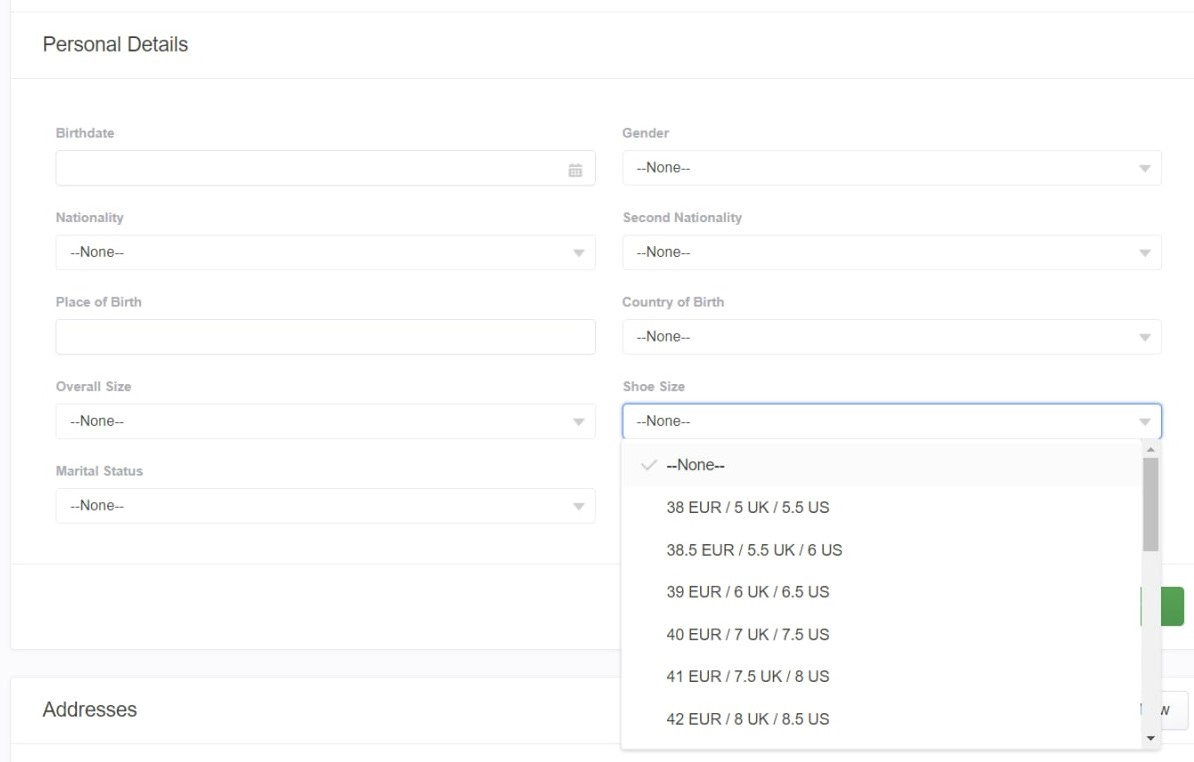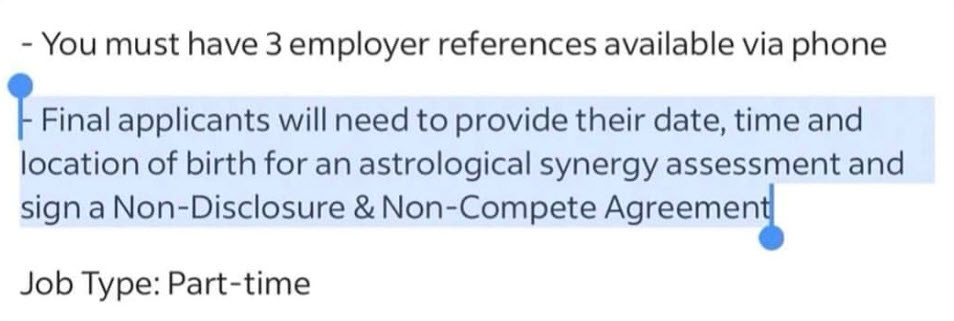The Recruitment Blind Spots That Drive Great Talent Away
How power inequalities inside organizations affect their external relations too 🧩 Exploring the recruitment process from the candidates' perspective

👑 Power tends to corrupt, and absolute power corrupts absolutely.
Have you noticed how some companies are so overburdened with their own importance that they believe they're invincible? That we can't live without them and they’re doing us a favor if they even glance in our direction, let alone hire us to work for them? We ought to fall to our knees in thanks 🙄
Here’s why this doesn’t sit right with me:
1️⃣ For starters, it’s not true. I’m sure certain companies would like everyone to believe it is; I also see some people do believe it (“a lie repeated a hundred times becomes the truth”). But no, it’s not true.
Companies need employees as much as employees need companies. It’s a mutually beneficial business transaction: people provide work, and companies sell that work - then everybody takes their piece of the money pie. So, companies need people to stay alive, and people need companies for the exact same reason.
Can people survive without companies? Yes. They can run a business on their own, like they’ve done for centuries prior to the Industrial Revolution. It’s harder, but it’s doable.
Can companies survive without people? No. Companies are made up of people, hence the name. A company without even one person in it makes no legal or business sense (for now, at least - let’s see what AI brings).
Who needs whom more, then?
2️⃣ In addition, I don’t like power games and politics; I believe in equal opportunities and meritocracy. However, the hierarchical structure that most companies still employ today breeds an abundance of power inequalities and all the mental aberrations that stem from that. Everybody is constantly involved in a game of cat and mouse that, at best, distracts companies from their main purpose and business activities, and at worst, destroys companies from the inside like a disease.
Moreover, the internal company environment always spills over to the outside. Sooner or later, customers, clients, partners, investors, etc., realize what kind of company they’re dealing with - mainly because they have to follow some of its processes, but also because they’re seeing the results of those processes. And this never ends up well for the company.
One doesn’t even need to look very far. It’s enough to apply for a job at one of those companies to take a peek at what’s really going on inside. The whole recruitment process raises plenty of red flags.
Let me take you on a journey:
💥 Career Pages
If you want to understand how a company works, good luck! The career pages are just shiny ads and nothing more. Anyone who’s into Marketing & Sales can recognize the methods used from far away - what the company stands for, who it works with, testimonials, etc. - all great on paper, but no substance.
The real meat is in the Employee Handbook (or a similar document). But that is usually off limits to external people. See here how to get to it - and, alternatively, check out the company reviews on Glassdoor.
💥 Job Ads
A job opening comes as a result of identifying tasks that need to be done, but no one inside the company has the knowledge and skills, or capacity (or maybe even desire) to do them. These tasks emerge from identifying the Problem → Solution → Implementation (Tasks). What you see in the job ads are the implementation tasks and what one needs to know to do them, but not the problem to be solved or the solution to that problem - to the point where jobs ads for Project Managers don’t mention the project, job ads for Product Managers don’t mention the product, etc.
This might not be such a problem if you’re a Junior employee and you’ll be learning on the job. However, Senior employees are at the level where they either create solutions to problems or identify the problems to begin with. So, for someone like me, for example, to know what type of solution to create, I need to know what problem we’re trying to solve. And if my manager (or contact point) doesn’t know this, I can’t proceed (unless I go above and beyond them, which makes them irrelevant).
💥 Salary
Nothing screams “inequality” louder than having a mandatory field for listing your expected salary, whereas the job ad doesn’t contain any information about it. The truth is, no company can open a new position without having approved a certain budget for it. And if they’re not willing to share it with you, but they demand you share your numbers, that already tells you where you stand.
💥 Account Creation
So, you’ve spent the time writing a CV, then spent the time customizing that CV according to the specific job opening, then even spent the time writing a Cover Letter, only to see you now have to create an account in the company’s internal system with all the data you’ve already listed in your CV and Cover Letter. And after your job search, you end up with hundreds of accounts all over the Internet that you cannot possibly remember or care to maintain, that only take up additional time and effort, and bring you little to no value. Might be great for all those recruiters to have everything pre-populated in the system for them, sure, but not so great for you.
Applicants are clearly so fed up with this practice that now I see more and more companies saying you don’t need an account when you start applying - and that’s great because I, for example, don’t apply if I need to create an account.
💥 Mandatory Fields
Even if you’re not creating an account, but simply filling out an application form, you’re sometimes asked mandatory questions that have no relation to how suitable you are for the job - exact address being one of them. While the need to know the city and the country is understandable, the street, block, entrance, and floor are certainly not needed at this point in the application process. Not unless the company intends to send you the rejection letter via post.

💥 Other Information
That said, some companies really want to stand out and make a lasting impression by asking truly unbelievable questions, such as shoe size or star sign 🫣
And others simply don’t care enough to even proofread what they’re posting:
💥 Automation
While there’s nothing wrong with automated screening tools like Applicant Tracking Systems (ATS) and Artificial Intelligence (AI), they must be used by human intelligence, not left alone to do the full work. Nowadays, I can already see the job ad was written by AI, then the recruiter calls to say they want to see “the exact code words from the ad in my CV” because “the client is really picky” - which in plain English means “I’m too lazy to do my job, so you need to do it for me” - then I’ll use AI to adjust my CV, send it over, and then AI will scan it on the other side too and, hopefully, move me further in the process. In other words, we’re all just pretending that some candidate selection is happening here because there’s money up for grabs.
This has gotten so out of hand that now recruiters are making a point when humans screen the CVs:
💥 Interviews
Interviews are supposed to be a two-way street, but very often they’re not. Some recruiters have specialized in the domain they recruit for, but most have not. Asking them questions is pointless - they have no clue what the role does or what you do. The whole time, only they ask questions and you answer - it resembles more an interrogation. And yet, you do have to please them so they can move your application forward - you’re literally dancing on the sharp edge of the knife here.
I had such a conversation with a lady who was headhunting me on LinkedIn. She was an internal recruiter and had no idea what the job she was recruiting for was all about, so I also didn’t know how she decided that I was a match. All that aside, she opened up the interview with the following question:
“Why do you want to work at our company?”
I paused for a second, then said:
“I thought you were headhunting me. Why do YOU want me to work at your company?”
It went only downhill from there.
💥 Career Gaps
Don’t you just love it when recruiters start investigating a gap in your career, as if you’ve spent time in prison? Well, funny enough, they can easily check if you’ve indeed been to prison, so that can’t be it. The underlying message is that you have to be slaving away, non-stop, from the time you finish studies until the time you retire or die - whichever comes first. How dare you take a break for whatever reason?! Even if that reason is totally unrelated to your work, knowledge, and skills.
Until recently, candidates were under the same scrutiny when they changed their jobs too often - they were considered a high risk and rejected on those grounds. However, multiple studies showed that if you stay in a job for over two years, you start losing money because your salary lags behind market rates. Thankfully, we don’t have to discuss this topic at job interviews anymore, but the topic of career gaps is still very much present.
💥 Tests
Passing some kind of test is typical during the selection process. However, some companies push this further and use it to collect strategic, implementation, and other plans and analysis for free - after which they reject all candidates. To avoid this situation, inform the company in advance about your fees and that you’ll be issuing them an invoice afterwards.
💥 Being Ghosted
Recruiters often don’t bother to communicate when internal priorities shift and roles get quietly deprioritized or, on the contrary, get filled out. It’s easier to just disappear than to deliver an uncomfortable “no”. The hidden message to the candidate is: You’re disposable.
💥 Rejection Letters
Rejection letters these days are all automatic - which means, written by robots for robots. They are all the same, and they bring zero value - I actually stop reading after “unfortunately” or “we regret to inform you”. Certainly, it’s better to know you were rejected than to be completely ghosted, but it would’ve been even better if you knew WHY you were rejected, so you know what to improve.
💥 Job Scams
It gets worse when the job opening was never real to begin with. Companies might already have an internal hire lined up and run a fake selection process just to tick boxes, or they’re up to some other shady business (as explained in the video below). And in the worst cases, it’s not even a company - it’s a scam, and they’re after your personal data or trying to hack into your PC.
💥 Welcome to the Chaos
You finally get the job, but by the time you actually start (months later, could even be more than half a year), the company has restructured at least once, your future manager has quit, and the role you were hired for? Gone.
Yep, that’s a true story - and sadly, one that keeps repeating.
😎 Convinced yet?
The way I see it, the recruitment process needs a total overhaul. However, to fix it, one has to fix the company from the inside - because that’s where the root cause of the problem lies. And that’s neither easy, nor fast.
So, until we get to where we should be, I leave you with this great piece of advice 😁
My Website | Freelance Revolution | LinkedIn | Instagram | BlueSky


















